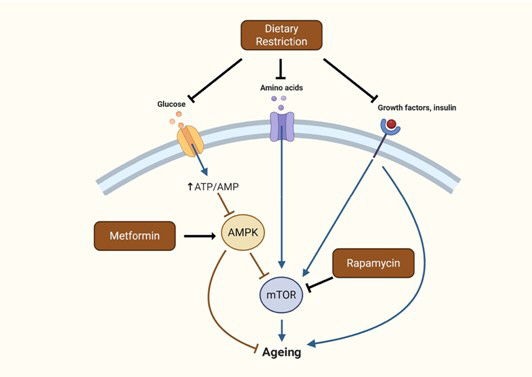The research team's immunosuppressant rapamycin has the effect of extending dietary restrictions
|
Dietary restrictions that reduce calorie intake have been considered the most reliable way to increase life expectancy, but long-term persistence is difficult, so studies have been actively conducted to find drugs that can control metabolism and increase life expectancy without dietary restrictions. In this regard, rapamycin and metformin, a type 2 diabetes treatment, have attracted attention as anti-aging potential.
In a study recently published in the medical journal Aging Cell by Dr. Edward Ivymi-Cook of the University of Glasgow and Dr. Zahida Sultanova of the University of East Anglia, the research team compared dietary restrictions with the life-extending effects of rapamycin and metformin by meta-analysis of 167 life-related research data on eight vertebrates, including fish, mice, mice, and primates.
Comparisons showed that dietary restrictions, from intermittent fasting to calorie restriction, consistently showed life-extending effects in all vertebrate species analyzed, and were as consistent as reducing the amount of meals. However, no significant level of longevity effect was observed in metformin-administered animals.
Discovered in 1964 by the Canadian-led Easter Island Medical Expedition, rapamycin was initially developed as an antifungal agent but later reversed course when immunosuppressive properties were discovered. It is currently used to treat cancer and prevent rejection after organ transplantation.
Regarding aging and longevity, previous studies have shown that rapamycin derivatives increase immunity and lower flu infection rates in the elderly, and studies have shown that women's menopause can be delayed by more than five years.
The research team said that although recent studies have shown evidence that low-dose rapamycin does not cause serious side effects in healthy people, further studies are needed on safety, such as the possibility of negative effects of rapamycin on the immune system.
This article was translated by Naver AI translator.




